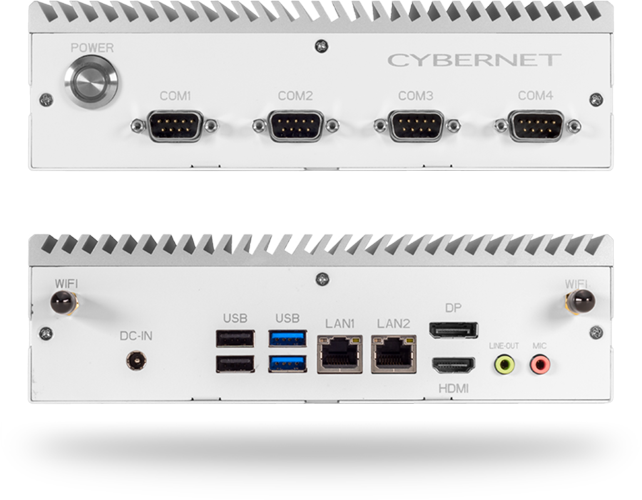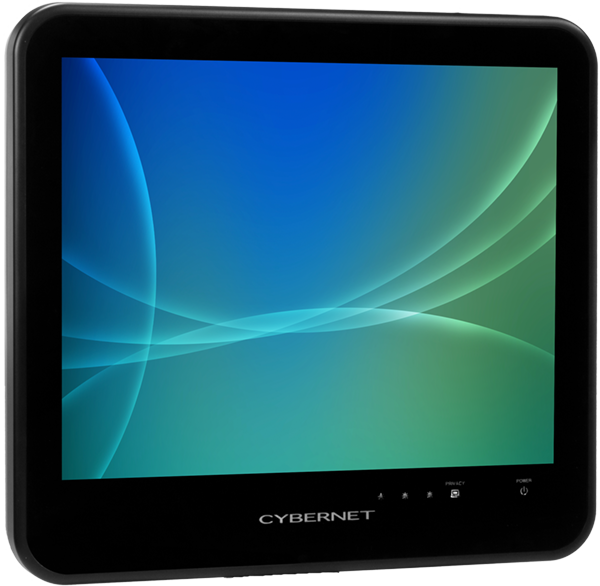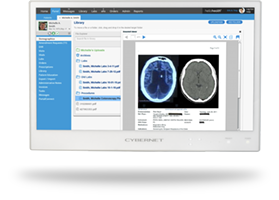Businesses are increasingly turning to kiosk computers to handle simple and routine tasks, taking the pressure off of employees and serving customers more quickly and efficiently.
Defining Kiosk Computers: What Are They?
Kiosks are nothing new for businesses or consumers. As a small, open-fronted hut or cubicle, a kiosk is typically used to sell smaller, lighter merchandise such as newspapers, refreshments, and clothing. But what is a kiosk computer? The principle is largely the same: it is a terminal built with a computer to provide basic services and information to customers and visitors.
Business Sectors That Use Kiosk Computers
Kiosk computers are widely used in multiple industries, such as:
Healthcare
Medical kiosk computers are widely used in the healthcare sector, from urban hospitals to rural clinics. Many facilities use kiosks as patient check-in computers, for example. Rather than wait in line for a receptionist to note their arrival and alert their healthcare provider, patients can simply swipe or scan their ID card at the kiosk to check in for their appointment.
Another novel use for healthcare kiosk computers is for telehealth in rural areas. The flexible port and customization options that a medical computer offers let it integrate a wide range of peripherals and healthcare tools, such as blood pressure monitors, glucose testing kits, and more. Malaysia has recently begun equipping rural clinics with medical kiosks featuring computers with telehealth capabilities, letting patients contact healthcare providers and receive basic care without having to travel to a hospital.
Retail
Kiosks with built-in kiosk computers are frequently used in retail roles, such as self-checkout lanes and point-of-sale systems. These kiosks let customers purchase goods without requiring an employee to scan goods and conduct the transaction.
Restaurants
Similar to retail, automated computer kiosks are a common fixture in fast casual dining. These kiosks display a restaurant's full menu, letting customers browse and select the meal they want, pay, and receive a receipt without ever requiring an employee’s attention.
Directories and Navigation
Larger shopping centers often utilize computer kiosks as digital directories to assist visitors in locating a specific shop or point of interest. These directories are particularly useful for two reasons. First, they are larger and easier to spot than trying to flag down an employee who might not even be familiar with the store in question. Second, they are easier to update than conventional printed maps; if a shop closes or changes locations, the digital map can simply be edited to reflect this change, rather than printing and installing a new version of the map.
Benefits of Using Kiosk Computers
While kiosk computers may not seem as impactful as technologies like artificial intelligence or the Internet of Things, using them brings benefits that have a lasting impact every day, for every visitor and transaction.
Less Reliance on Staff
First and foremost, using kiosk computers means less reliance on employees for both your business and your customers. Computer kiosks do not get sick, tired, or distracted, meaning they can assist customers one after another without needing a break. This makes it easier to expand your operations or reduce your reliance on staff, allowing them to focus on other tasks.
Faster Customer Service
A dedicated computer kiosk will almost always be available and ready to serve customers who need help. Employees, on the other hand, likely have other tasks or responsibilities that they need to attend to. This inevitably means employees have to juggle both tasks or set one aside to address the other. A kiosk dedicated purely to its task does not have this issue, meaning customers have their concerns or questions addressed immediately.
Easier Deployment and Use
Thanks to their self-contained design, computer kiosks are exceptionally easy to install into a pre-existing workspace. By combining the computer, display, and control interface into one device, a kiosk simplifies cable management and reduces the amount of support it needs. If a conventional power cable cannot be supported, there are also Power over Ethernet options that draw data and electricity from the same supply.
Requirements for Kiosk Computers
When considering computers to use as part of a kiosk, there are several critical aspects to review before committing to a purchase. The most important of these aspects are:
Reliability
A kiosk computer will be in use for hours at a time, potentially 24/7 in some cases, such as in healthcare settings. It is also likely that there won’t be dedicated computer or IT specialists in a work environment with kiosk computers, meaning any breakdown or interruption in service will require an outside expert to fix. For these reasons, kiosk computers must be designed to be as reliable as possible, such as using fanless cooling to minimize the number of moving parts.
Intuitive User Interface
For kiosks intended for general public use, simplicity is an absolute necessity. Not everyone is familiar with computers, and peripherals like mice and keyboards are vulnerable to theft or vandalism. For these reasons, most modern kiosk computers utilize touch-screen controls. Touch-screen monitors combine both a user interface and a display, simplifying their deployment and providing users with an intuitive means of interacting with them.
Connectivity
This category applies to both wired and wireless connections, as computer kiosks may be asked to rely on both. Kiosk computers will most likely have to rely on Wi-Fi networks to maintain Internet connection, making it vital that they implement effective cybersecurity systems to prevent theft or sabotage. Some kiosks, such as those used in healthcare, may also have to support other devices. These devices will rely on their own modern or legacy port connectors, making it necessary for the computer to feature the corresponding ports as well. Consulting with an original equipment manufacturer (OEM) is ideal, as they can customize their computers to the specific needs of the customer.
Kiosk Computers from Cybernet Manufacturing
What is a kiosk computer? Properly implemented, it is a simple, convenient solution for customers and guests, ensuring they receive the service they need without requiring an employee’s attention.
If your company is interested in using kiosk computers in its operations, contact the team at Cybernet Manufacturing. We would be happy to review how our medical, industrial, and enterprise computers can be used in kiosks thanks to their large touch-screen displays and rugged design features.


